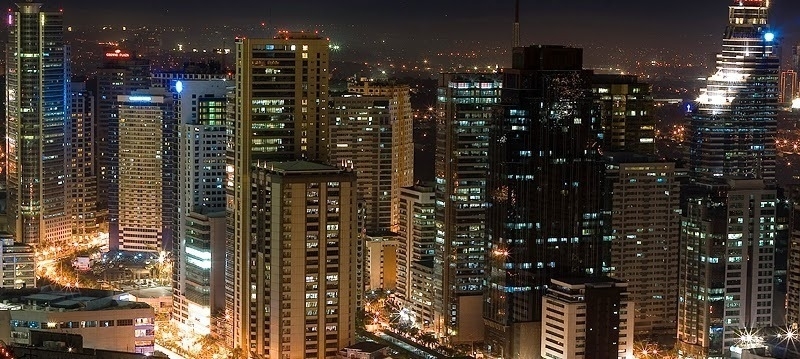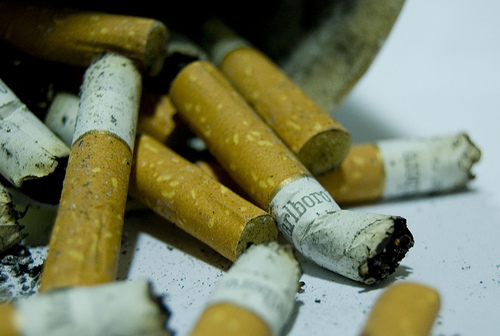Economics
On the Philippine IT-BPO Industry- 'Bayaning Puyat' or Dead-end Job

Many skilled Filipinos detest the idea of working in a call center, but is that position justified? In this photo is the Ortigas skyline, one of the central business districts in Manila, the capital.(Photo: RamirBorja/Wikimedia, CC BY-SA 2.5)
The call center industry, or more widely called IT-BPO, has received its fair share of praise for contributing to economic and job growth, but a job in this industry still carries the stigma of low pay and low skill. We can take a look at the IT-BPO industry using data from the Bangko Sentral ng Pilipinas to shed some light on the graveyard shift.
On Philippine Foreign Trade: USA vs China
The world is in the middle of an epic struggle for political influence between the USA and China, but what does this mean for Filipinos, who are trapped in the middle, both in the geographic and political sense? We can take a look at the data on one of the avenues of influence, foreign trade, and find out a little bit more.

GOLD VS GLORY - There is a legitimate debate as to whether economic or military power is more relevant in the long-run. In this photo, the USS Washington enters the Manila bay for a 2010 port visit. Flickr/US Navy Official Imagery, CC BY 2.0)
The conflict between East and West is heating up - US bombers defy the Chinese Air Defense Identification Zone (ADIZ) over the East China Sea, and US and China Naval Vessels almost collide with each other in the West Philippine Sea.
All this leads me to think how this will impact the Philippines, a tiny country literally and figuratively caught in the middle. Situated in the Pacific Ocean, the island nation has always aligned itself with US interests, but recent developments over the past few years have resulted to Philippine officials taking a more measured approach to Chinese foreign policy.
On the Effectiveness of Sin Taxes in the Philippines (2013 Q3 Update)
UPDATE (Sept 16 2014)
This post has been updated with 2014 Q2 data.

How are the new sin taxes faring in the 3rd quarter after their implementation? The numbers say - pretty good. (Photo: Fried Dough/Flickr, CC BY 2.0, cropped)
SIN TAXED - How effective are higher sin taxes at reducing alcohol and tobacco consumption? Some say it’s a ‘tax on the poor’ and it would only lead to downshifting to cheaper, more dangerous brands, others are all for it, armed with the basic principle of demand. Newly released 3rd quarter national accounts can shed light on the situation.
This is an update of a previous post I made a few months back to incorporate the new Q3 statistics. If you want to see the details of the sin taxes, you can check the previous article.
On Why You Shouldn't Save While You're Young
On Tax Evasion in the Philippines: They go to crooked politicians, anyway
On the Effectiveness of Higher Sin Taxes
UPDATE (Sept 16 2014)
This post has been updated with 2014 Q2 data.
UPDATE (Dec 11 2013)
This post only uses data for the first two quarters of 2012. I’ve updated it with the latest 3rd quarter national accounts data in a quick new post, so you might want to check that out afterwards.

Around 1% of household expenditures go toward purchasing cigarettes. (Photo: Flickr/Bachmont, CC BY 2.0)
HOW EFFECTIVE ARE HIGHER SIN TAXES? Last year, President Aquino signed the Sin Tax Bill, raising the effective tax burden on sin products from 26% to 63% within 5 years. It had two goals: (1) raise revenue for the government, and (2) reduce cigarette consumption and negative externality. It’s now been half a year since the new taxes were implemented, and it’s a good time to assess how it’s been achieving its goals so far.
On the Great Gatsby Curve and Electric Fences in South Africa
The Great Gatsby tells the story of a man who claws his way from rags to riches, but finds that wealth alone cannot provide him the privileges of those born in the upper class. On the economic side of things, a new and hotly debated idea, dubbed the Great Gatsby curve, encapsulates this anecdote in data. It illustrates the possibility that income inequality might lead to lower social mobility in a country.
An electrified city
Having recently gone to Johannesburg, South Africa to participate in a business case competition, I’ve of course taken the opportunity to explore the city as well. On our way to Sandton City, a shopping area, I began to notice that almost all of the beautiful buildings were nested in ominous, tall, and electrified fences:

Electrified fences tarnish the beauty of many of the buildings in Johannesburg’s Sandton business district
All this obsession with protecting private property made me wonder how much South Africa has managed to heal from the scars of Apartheid which, after all, only ended 19 years ago in 1994. Apartheid was a former policy of racial segregation in South Africa that caused huge disparities in the living conditions between blacks and whites in the country. It permeated everything from residential areas down to the public toilets.